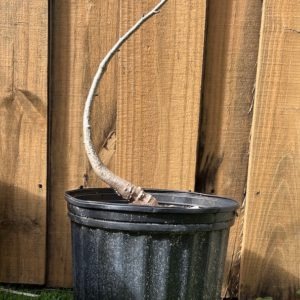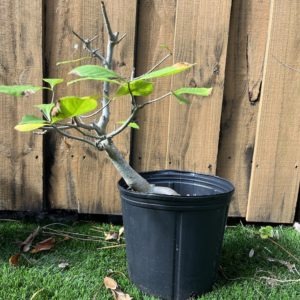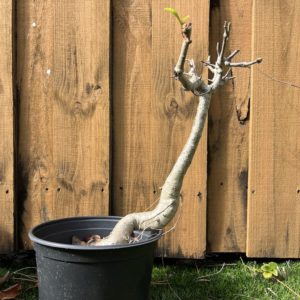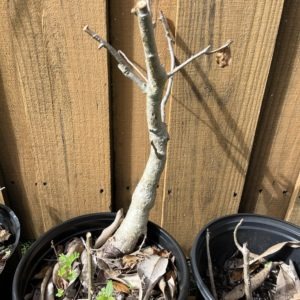Adansonia digitata, the African baobab tree
Elevate your space with the extraordinary Baobab Tree Seedlings, native to tropical Africa and revered as stunning landscape monuments. These seedlings, carefully cultivated and pruned, carry the legacy of the iconic Baobab tree, a symbol of resilience and natural beauty.
The fruits of the Baobab boast a velvety skin in a captivating grey-brown hue. Their acidic pulp is not only delectable when consumed fresh but can also be transformed into refreshing drinks. Once fully ripe, the high-vitamin C content in the dry pulp is utilized to create a beverage reminiscent of lemonade. The leaves are edible and can be cooked, while the seeds serve various culinary purposes. Ground seeds make an excellent flour substitute in baking, and roasted seeds provide an alternative to coffee.
Thriving in full sun with optimal drainage, Baobabs are resilient once established, showcasing impressive drought tolerance. Keep in mind that these trees grow to enormous proportions, with large specimens even flourishing in Florida. However, caution is advised, as Baobabs are sensitive to cold and should be safeguarded against frost.
Baobab Care Guide:
- Sunlight: Flourish in full sun for optimal growth.
- Watering: Maintain well-drained soil, water sparingly, showcasing impressive drought tolerance once established.
- Temperature: Shield from frost; sensitive to cold conditions.
- Pruning: Minimal pruning, focusing on dead or damaged branches.
- Fertilization: Support growth with balanced, slow-release fertilizer during the active season.
- Pest Control: Vigilantly monitor for pests; address promptly if detected.
- Container Size: Opt for a pot accommodating eventual growth; consider for indoor cultivation.
- Indoor Care: Ensure adequate sunlight exposure indoors, use well-draining soil, and adjust watering accordingly.
- Soil: Choose well-draining sandy or loamy soil for optimal root health.
- Transplanting: If in a container, transplant with care as the seedling matures.
- Patience: Baobabs are slow growers; allow time for establishment and flourishing, bringing a touch of African landscapes indoors or to your outdoor spaces.
Click the link to learn more about baobab trees.





